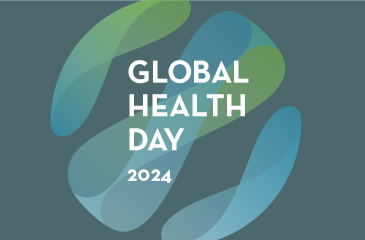When the University of Minnesota announced on March 12, 2020, that all in-person classes at its five campuses were moving to online learning, it was a first in the University’s history.
Campus Public Health Officer and Vice President for Clinical Affairs Jakub Tolar, MD, PhD, had announced that all in-person instruction, including clinical rotations, was suspended and moving to alternative instruction a day earlier. On March 13, Tolar’s update included a challenge to colleagues: “Leadership is not measured by meetings or committees,” he wrote. “It is the ability and willingness to stand up to the challenge and deliver a rational, measured, effective response. Over and over again.”
During a worldwide pandemic, the critical role of the University’s M Simulation team in preparing the future healthcare workforce is more vital than ever. In a rapid COVID-19 response, the team mobilized to deliver its healthcare simulation online.
Incoming M Simulation Executive Director Lou Clark, PhD, MFA, reached out to colleagues across the globe by creating a Facebook group called Simulation Online 2020. The group has quickly grown to more than 430 members.
“The team at M Simulation was steeped in the logistics to pivot to online simulation education,” said Clark. “I was monitoring how others were responding on a national and international level. This is an unprecedented time for us as an industry, which necessitates the expediated and immediate move to online platforms.”
A key component of M Simulation is the Standardized Patient (SP) Program. SPs are individuals from the community who are coached to accurately and consistently recreate the history, personality, physical findings and emotional state of an actual patient. Since 1963, SPs have been trained to serve as an integral part of health sciences education across the country.
According to M Simulation Education Director Anne Woll, MS, there are approximately 330 trained SPs who currently serve on-call for educational contact each year with students across the health sciences and medical residents on the Twin Cities and Duluth campuses, as well as the regional healthcare community.
Pivoting online in one week
Using the Zoom platform, a group of seven M Simulation staff dove in to learn the logistics needed to implement formative Objective Structured Clinical Examinations (OSCEs) and to effectively train SPs online.
By March 20, the M Simulation team had rolled out fully online formative OSCEs with health sciences students—a small OSCE for 15 graduate nursing students and a large-scale OSCE for 104 veterinary medicine students.
“This was our first project we ran via Zoom,” said Woll. “It went remarkably well, and I attribute that to our high standards and commitment to helping each other out as we worked through the challenges.”
Sharing practical knowledge, skills and training methods online
Following the success of the two OSCE events, the team mobilized again to develop an online series via Zoom to share what they learned with others in the simulation industry. The Healthcare Simulation Online COVID-19 Response in 2020 and Beyond series was launched on March 27 with a webinar called “Zooming in with SPs in COVID-19 Response.”
The participants learned how to manage breakout rooms in Zoom, tips for facilitating orientation and debriefing sessions with students and faculty, and suggestions for coaching SPs on how to deliver physical exam findings in a narrative style.
“There’s a connection that happens online as you get to see how the SPs and students work through the stress and maintain their professionalism,” said Joe Miller, BS, CHSE, SP Program Coordinator for M Simulation. “That connection has been very powerful to see.”
With more than 300 participants attending, the Zoom meeting met its maximum capacity. Participants attending the webinar represented more than 30 states, four countries including Germany, the Netherlands, Estonia, and Canada, and a representative from the National Board of Medical Examiners. In real time, the M Simulation did troubleshooting to determine that the next session will set up as a Zoom webinar instead of a meeting to accommodate the demand.
As one of the Simulation Online 2020 Facebook group members commented, “This was amazing. One of the best webinars I have attended in a long time. You all have created an amazing blueprint. Thank you for sharing with us.”
“It’s remarkable what the M Simulation team was able to accomplish in the past two weeks,” said Clark. “With COVID-19, we are just beginning to see the implications of how this could change the simulation industry. While these are very challenging times, we will get past them and build on the forced innovation occurring right now in the simulation healthcare field. COVID-19 is changing the way we deliver simulation and, ultimately, will expand opportunities for our work to support healthcare learners.”
SPs in the time of a COVID-19 pandemic
Woll sees great potential in the Zoom platform with SPs and delivering online clinical training during the unprecedented times of the COVID-19 pandemic. “This has expanded how we can partner with our SPs and the community to deliver vital clinical training,” said Woll. “We’re prepared to engage in dialogue with faculty across the University and expand our services where they are needed.”
As the M Simulation team develops more sessions on how to implement healthcare simulation online, the team is uniquely poised to play a leadership role in addressing emerging needs.
“Our goal is to embrace these online platforms,” said Clark. “This is the time for simulation training to step in and fill the gap.”
As the team works to meet the needs for clinical training for the schools in the health sciences and the surrounding professional health care workforce, they will continue to share lessons learned with others in industry.
“Three weeks ago, I wouldn’t have imagined hosting 300 people out of my dining room for an online simulation webinar,” said Woll.
Tips from incoming Executive Director of M Simulation Lou Clark, PhD, MFA, for other institutions pivoting to online delivery of clinical training
1. Reach out to your leadership and ask for the tools and resources you need.
2. With smaller programs, consider reaching out to colleagues in other institutions to collaborate.
3. Aim to keep your SPs working remotely online during this unprecedented time as these positions are on-call and they are critically important for training health care professionals.



